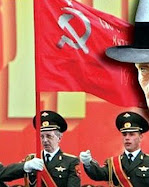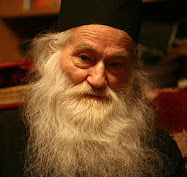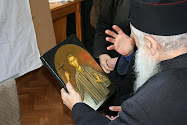 This precedent legitimizes the doctrine of imposing solutions to ethnic conflicts. It legitimizes the act of unilateral secession by a provincial or other non-state actor. It transforms the right to self-determination into an avowed right to independence. It legitimizes the forced partition of internationally-recognized, sovereign states. It violates the commitment to the peaceful and consensual resolution of disputes in Europe. And it supplies any ethnic or religious group with a grievance against its capital with a play book on how to achieve their ends.
This precedent legitimizes the doctrine of imposing solutions to ethnic conflicts. It legitimizes the act of unilateral secession by a provincial or other non-state actor. It transforms the right to self-determination into an avowed right to independence. It legitimizes the forced partition of internationally-recognized, sovereign states. It violates the commitment to the peaceful and consensual resolution of disputes in Europe. And it supplies any ethnic or religious group with a grievance against its capital with a play book on how to achieve their ends.Address Before a Meeting of the Southeast Europe Cooperation Process by H.E. Mr. Vuk Jeremić
Minister of Foreign Affairs of the Republic of Serbia,
Sofia, 28 February 2008
Mr. Chairman,
Excellencies,
Ladies and Gentlemen,
I would like first to thank our Bulgarian friends for organizing this important event, and for their kind hospitality.
The Southeast Europe Cooperation Process is the region’s highest political forum and, together with the RCC, forms the backbone of regional cooperation.
Our determination to establish full ownership over these mechanisms of cooperation is a sign of our growing maturity as democracies.
We all know this. We repeat it as a mantra. But what does “regional cooperation” really mean?
To me, it is about Europe in a more profound sense. It is about reconciliation, about focusing on the common interest, about overcoming the conflicts of the past, about maximizing the advantages—the moral, political, economic, and social advantages—of a joint undertaking.
To establish the trust necessary to see through a concerted engagement in a long-term enterprise—a whole that becomes greater than the sum of its parts. A whole that has the possibility to become even greater. That is Europe in a more profound sense.
It is what regional cooperation means for Serbia.
Excellencies,
On February 17th, the Provisional Institutions in the Serbian province of Kosovo, under UN administration since June 1999, unilaterally, illegally and illegitimately declared independence from my country—in violation of the United Nations Charter, in contravention of Security Council Resolution 1244, and in opposition to the Helsinki Final Act.
This attempt at secession strikes at the very heart of the binding principles of the international system—principles such as the respect for the territorial of states, and the inviolability of internationally recognized borders.
To advance this attempt, deals have been made; pressure has been exerted; arms have been twisted—throughout the region, across Europe, and around the world. Some countries have succumbed, others might, still others shall not.
And it’s a shame, for instead of rallying under the banner of regional solidarity, some have chosen to side with those beyond the region who equate power with justice.
As a result, a revival of the debate about the legitimacy of internationally recognized borders has been triggered—what a leading British analyst on Sunday termed “illegal Balkanization.” Its ripples are already being felt around the world—notwithstanding the preposterous claim that Kosovo is sui generis. Let me exclaim out loud what I hope you already know: precedents are not made; they are not proclaimed. They just happen.
And because of Kosovo’s illegal attempt to secede from Serbia, a precedent that does fundamental damage to what we’re trying to create together is being established. It is growing in strength as we sit here today.
This precedent legitimizes the doctrine of imposing solutions to ethnic conflicts. It legitimizes the act of unilateral secession by a provincial or other non-state actor. It transforms the right to self-determination into an avowed right to independence. It legitimizes the forced partition of internationally-recognized, sovereign states. It violates the commitment to the peaceful and consensual resolution of disputes in Europe. And it supplies any ethnic or religious group with a grievance against its capital with a play book on how to achieve their ends.
And for what purpose?
Why have some chosen to sacrifice the region’s 21st century geo-strategic priorities on the altar of maximalist, 19th century communal aspirations?
Is it because of the fear of violence if someone’s demands are not met?
Is that what we’ve become—victims of ethnic blackmail? Is that the price for putting our values into practice? I can’t believe that’s true.
____
Some people are effectively saying that in 1999 they chose not to wrench Kosovo away from Serbia when it was ruled by a dictator, so instead they will do so now, in 2008, when Serbia is governed democratically and fully engaged with the international community.
____
Another reason, I am told, why some have opted to capitulate to the secessionist demands of the Kosovo Albanians, is that the negotiations failed.
Is that the reason? The Serbs and the Albanians just couldn’t agree after a few rounds of talks, so a solution had to be imposed on them?
In truth, it’s not a valid reason. And I’ll tell you why.
As time went on—and the artificial deadline loomed large—the Pristina delegation felt no need to prevent the ultimate failure of the talks. They were told in advance, by some very powerful people, that they would get everything they wanted if they did not concede an inch, if they did not reach out for that common interest we all know is out there.
Ladies and Gentlemen,
When the dust settles, when the forty or so countries worldwide that choose to recognize the illegal declaration of independence by Pristina do so, we will all come face to face with a new, sobering reality: Kosovo will not be a member of the United Nations; it will not be a member of the OSCE. And as such it will not belong to the world community of sovereign nations. It will never acquire this ultimate status of legitimacy. Even here, today, Kosovo is a guest of the Chairman. It is not a participating state. And let me tell you loud and clear: for as long as Serbia is, Kosovo shall never be.
Serbia will not yield from its position that the future status of Kosovo must be arrived at through an agreement between the parties—a negotiated, peaceful, mutually-acceptable settlement reached through compromise, concession and consensus-building—a settlement that addresses the legitimate right to broad self-governance for Kosovo’s Albanians, while preserving a democratic Serbia that is whole and free, fully integrated into Europe, and actively engaged with the world community.
Excellencies,
It may be undiplomatic to say so, but your countries find themselves facing the consequences of a perverse choice that asked of my country to choose between Kosovo and Europe. As a result of this, you are effectively being put in a situation to choose between Serbia and Kosovo. This is not what we wanted. It is not what we worked to achieve. It is not where we wished to be. But we are where we are.
I can only appeal to your conscience, for Serbia is not a superpower—we don’t have at our disposal what some others do. But we have justice, international law, and common sense on our side.
Let me be frank. The countries that choose to pre-empt a negotiated solution to Kosovo’s future status by recognizing the illegitimate secessionist ambitions of the province’s Albanians will have chosen to downgrade their relationship with Serbia, a proud, democratic neighbor—a pillar of stability and security in Southeast Europe.
Our comprehensive ties would suffer as a result of such a choice. This would be deeply regrettable, all the more so since it was—and remains—entirely avoidable.
Let me repeat, in closing, the position of Serbia: we will stay the course; we will look to the future; we will seek agreement; we will pursue concord. And we will not give way, we will not ignore the law; we will not bow out; we will not recognize.
Kosovo shall remain a part of Serbia forever.
More News Available on our:Kosovo Daily News list (KDN)KDN Archive
Earlier Newsletters can be found at: http://www.kosovo.net/erpkiminfo.html Photo Galleries of the March pogrom are available at: http://www.kosovo.net/pogrom.html
Terorismul albanez din Kosovo si planurile geostrategice ale marilor puteri
http://www.ziua.ro/display.php?data=2008-03-01&id=233956


































































No comments:
Post a Comment